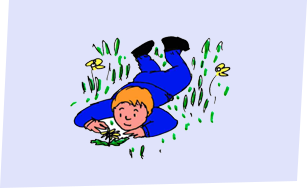Descriptive Praise
No matter how old your children are, your praise and encouragement will help them feel good about themselves. This boosts their self-esteem and confidence.
Descriptive praise is when you tell your child exactly what it is that you like and is a very effective tool for giving information in a way that children are able to receive it. For example, ‘I love the way you shared your Lego with your brother just now’. Descriptive praise is an excellent motivator and is best for boosting self-esteem and reinforcing positive behaviour – when children get praise for behaving well, they’re likely to want to keep behaving well.
It is easy and natural to use overblown praise:
But it has the following problems: Children often do not believe we mean it; They may not know what they are being praised for; They become dependent on this praise for reassurance.
Be descriptive! Children want our attention and approval. If we comment on the behaviour we want more of they will do it to get our attention and approval. What you notice gets repeated!
How can we praise more effectively?
Look for small improvements in children’s behaviour and effort. Describe what we see in specific terms:
Illustrations from How to Calm a Challenging Child by Miriam Chachamu (Foulsham, 2008)©
Using Praise to change behaviour
You can use praise as a tool to help change difficult behaviour and replace it with desirable behaviour.
The first step is watching for times when your child behaves the way you want. When you see the desirable behaviour, or another behaviour you like, immediately get your child’s attention.
Then tell your child exactly what you liked about the behaviour. You can praise effort as well as achievement – for example, ‘It’s great how you used words to ask for that toy’. You could even look for ways to reward the desirable behaviour – for example, give your child a high five or special cuddle.
At the beginning, you can praise every time you see the behaviour. When your child starts doing the behaviour more often, you can praise it less.
Praise effort, not just achievement
Children need praise the most in areas they are progressing the least!
the following are a few examples of praising effort:
"What a tricky question but you took a guess anyway. That was brave!"
Descriptive praise examples for independence
- You worked out it was bath time without me telling you.
- Bookbag, water bottle, lunchbox, coat and hat. You have remembered everything.
- You managed to get dressed in x minutes apart from your shoes. That is 1 minute faster than yesterday.
- I know you don’t like peas, but you tried a few anyway without a fuss
- This is a very interesting idea. How did you come up with it?
Tips for using PraiSe, Encouragement and rewards
- Describe what it is that you like. This is what we mean by ‘descriptive praise’. When you say exactly what you’re happy about, your child knows what you mean. For example, ‘I like the way you’ve organised your room. You’ve found a spot for everything’ or ‘I love the picture you drew. You really know how to put colours together’. And describing what you like is much more genuine and convincing than vague /overblown praise such as ‘You’re a good boy’
- Praise your child for his/her strengths. Children have their own unique set of strengths (and weaknesses). Try to appreciate your child’s good points. Try to avoid comparing one child to another, because this can lead to feelings of resentment or create unrealistic expectations.
- Encourage good behaviour with praise, rather than pointing out the bad. This means trying to do more praising than criticising.
- It takes a lot of praise to outweigh one criticism. Experts suggest trying to praise children six times for every one time you criticise them.
- Look for little changes and successes. If you wait until your child has done something perfectly to give a compliment, you might find yourself waiting forever.
- Accept that everyone’s different, and love those differences. Encourage each child to develop and feel excited about particular interests. Help your child develop a sense of pride and confidence in her choices or activities.
- Surprise your child with a reward for good behaviour. For example, ‘Thanks for picking up the toys – let’s go to the park to celebrate’ or ‘Thanks for helping me prepare dinner. You can choose what we have for dessert’.
- Praise effort as well as achievement. Recognise and praise how hard your child is trying – for example, ‘You worked really hard on that essay’ or ‘Thank you for remembering to hang your coat on the peg’.

